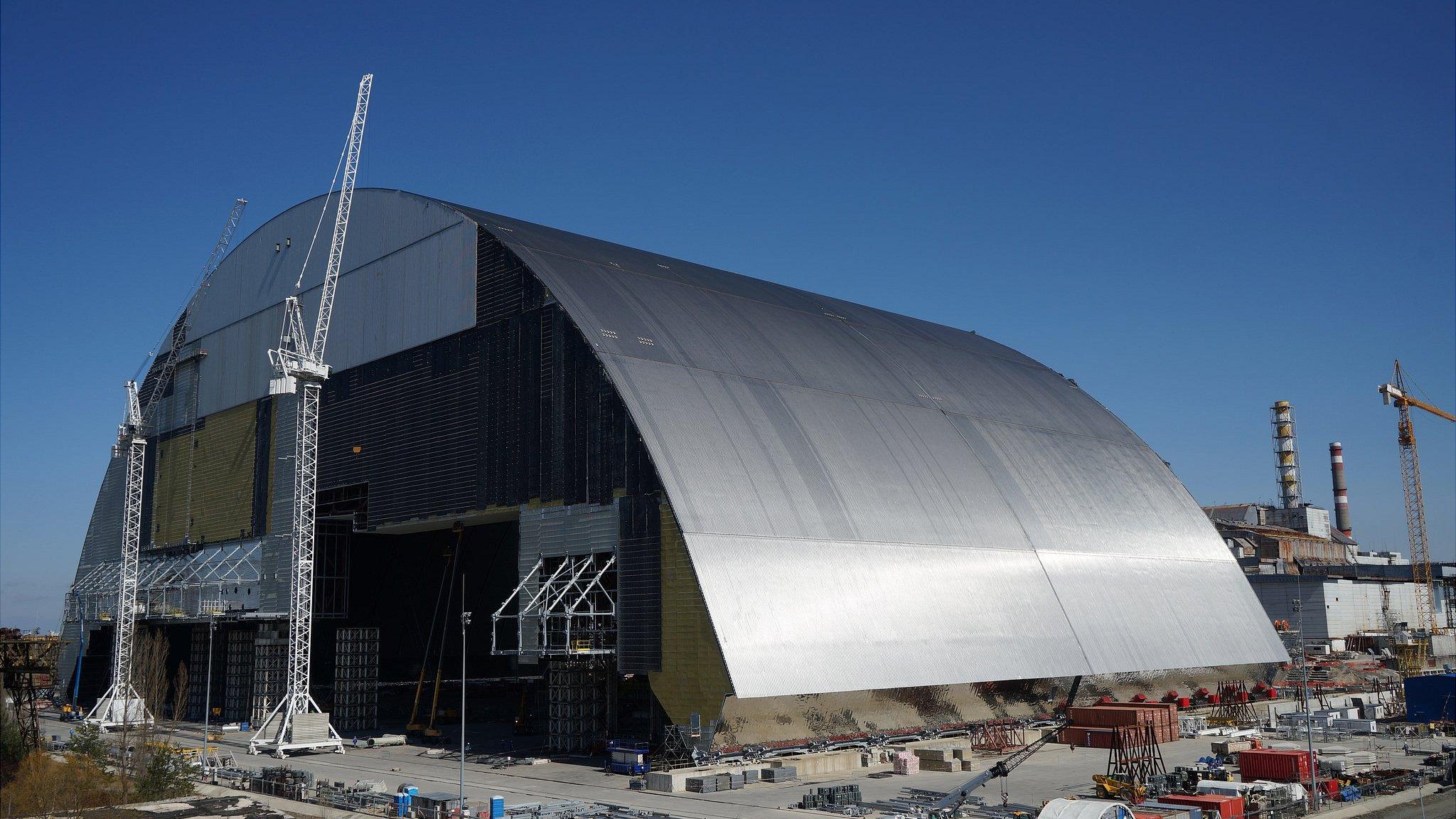Chernobyl: The charities who help disaster children
- Published

The five-part series Chernobyl focused on the causes and fallout of the disaster
The world's worst nuclear disaster has been brought back into sharp focus by the Sky Atlantic drama Chernobyl. But 33 years after the event charities in England are still helping those affected by the fallout.
Jostling for position among the usual array of bakeries, hairdressers and newsagents in a market town's shopping street is a rather unusual store.
It is a charity shop set up with one aim - to help those affected by a nuclear disaster more than 1,300 miles (2,000km) away.
"They were people like us," shop manager Gerald Hirst said, when asked why the people of Crook in Durham decided to help those so far away.
"They were every day normal working people with families."
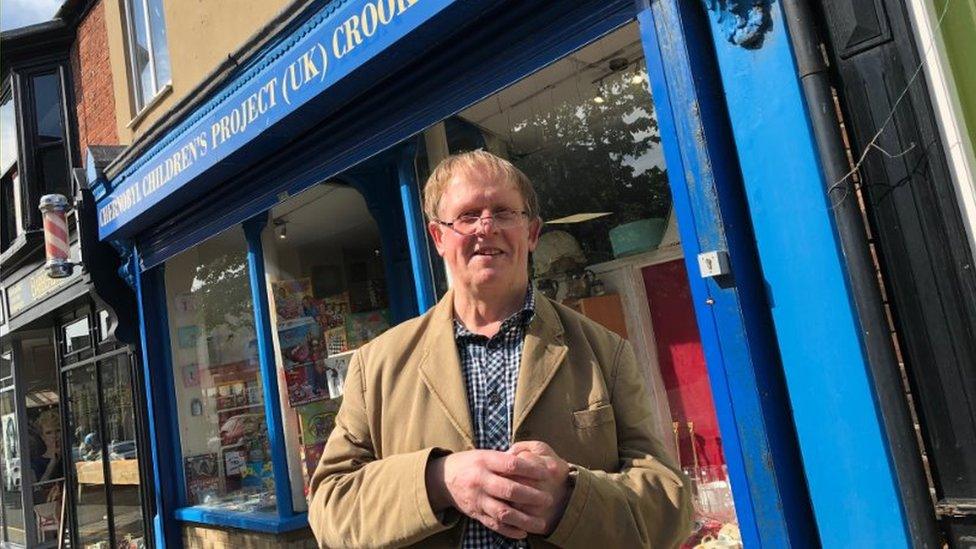
Gerald Hirst said the people of Crook were moved to help
The shop opened in 1987 in response to the devastation caused when reactor number four at the nuclear power station in Chernobyl, Ukraine, exploded in the early hours of 26 April, 1986.
The event has been revisited by the Chernobyl drama, which focuses on what caused the disaster and the political and personal fallout.
"Because of the show, more people have been stunned than anything else," Mr Hirst said.
"They cannot believe what happened and what is still happening to this day.
"People do come to this shop because they want to help."
The shop's initial aim was to raise money to fund medical aid, but soon it became one of a number of hubs around England hosting visits of children from Belarus affected by the fallout.
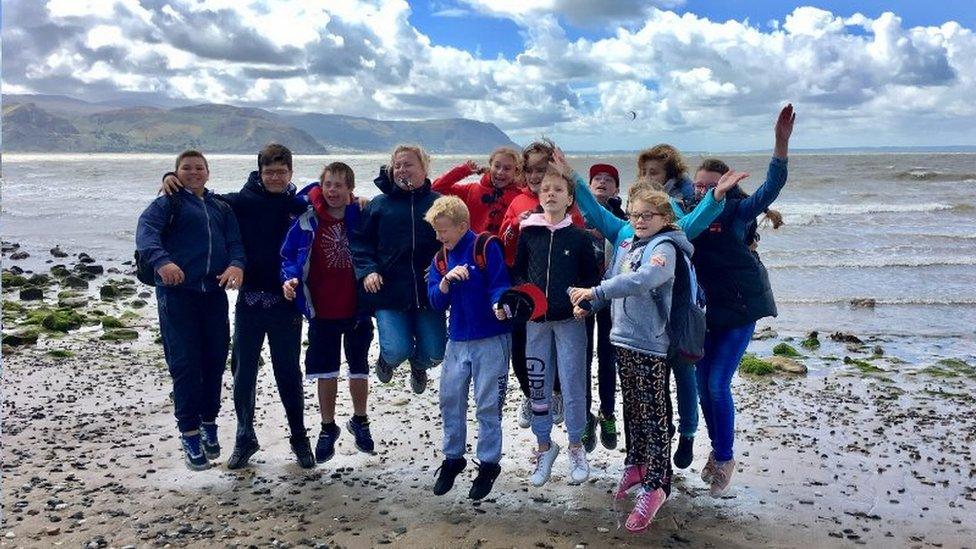
The Chernobyl Children's Project (UK) brings children from Belarus to the UK for four weeks at a time
Six years ago the Crook store became part of the Chernobyl Children's Project (UK), which was set up by Linda Walker in 1995 and is one of a number of Chernobyl-related charities across the country.
The Glossop-based charity has brought more than 3,000 Belarusian children to the UK for four-week long holidays.
Ms Walker said people in the most contaminated areas have large amounts of caesium-137 in their systems, a long-lasting radioactive substance which infiltrated the land and food and impairs the immune system.
"Doctors in Belarus say four weeks of clean air and food makes a big improvement to the children's immune systems thanks to a drop in the caesium," Ms Walker said.
"We have more recently been bringing over children and teenagers with cancer which offers a fantastic psychological boost for them to realise people in other countries care about what is happening to them."
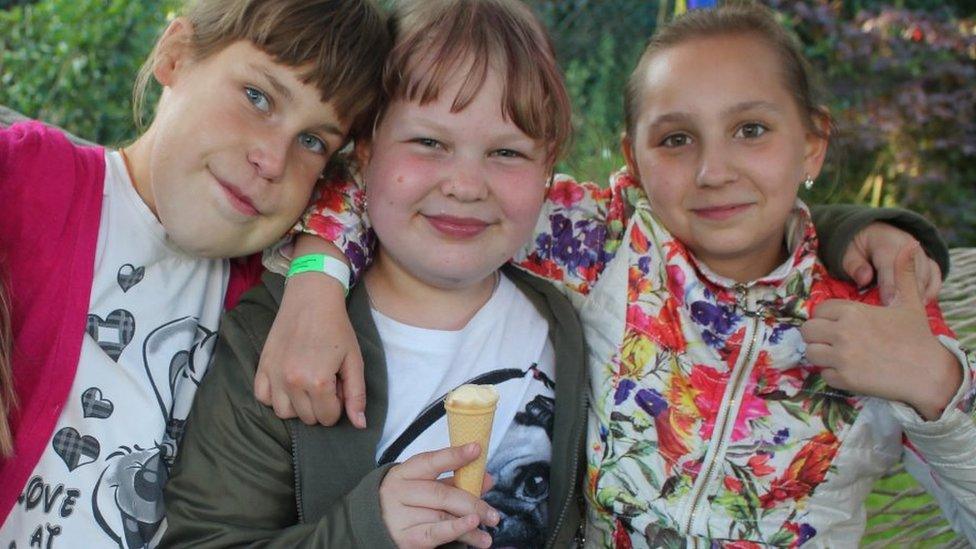
Linda Walker said four weeks away from the contaminated area provides a big health boost to children
The charity also sends workers out to Belarus to run holiday camps, respite centres and education on disability.
The Sky drama tells viewers there was a spike in cancer and disabilities after the blast, particularly in children, with estimates of the number of deaths caused ranging from 4,000 to 93,000.
The official Soviet Union figure, unchanged since 1987, is 31.
Mrs Walker said it is impossible to get finite figures or confirmation about how many people have been affected by the blast, but said it would seem people who were children at the time are now "carrying problems over" to their own offspring.
"No-one knows what will happen in future generations," Ms Walker said, adding: "But I'm sure it will affect people for decades to come if not hundreds of years."
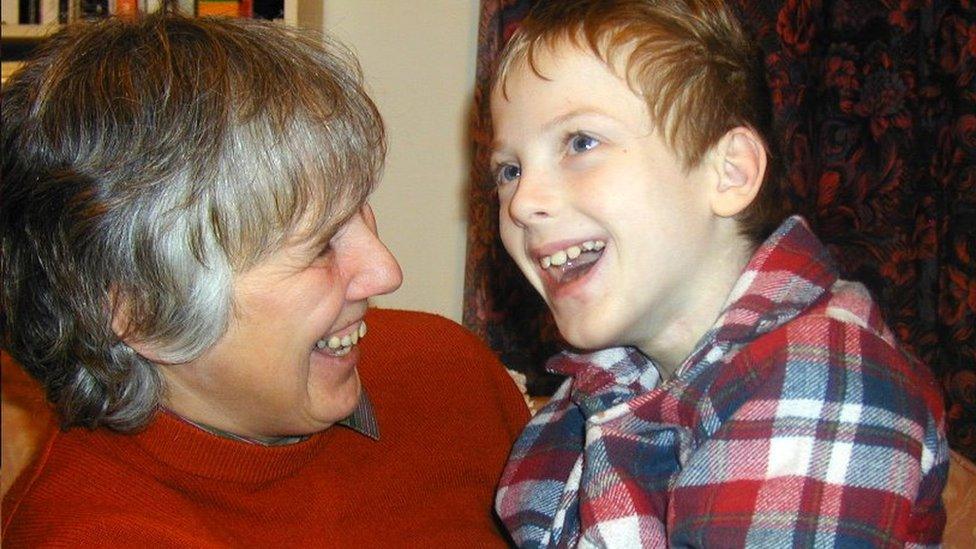
Linda Walker founded the Chernobyl Children's Project (UK) in 1995
The Sky drama has already resulted in a huge volume of calls to the charity, she said.
"People have been sending donations and wanting to know more about what is being done to support those affected by the accident," she said.
Ms Walker said she also hopes it will motivate more UK families to host Belarusian children, with numbers dropping off because a lot of people thought the disaster was "so long ago".
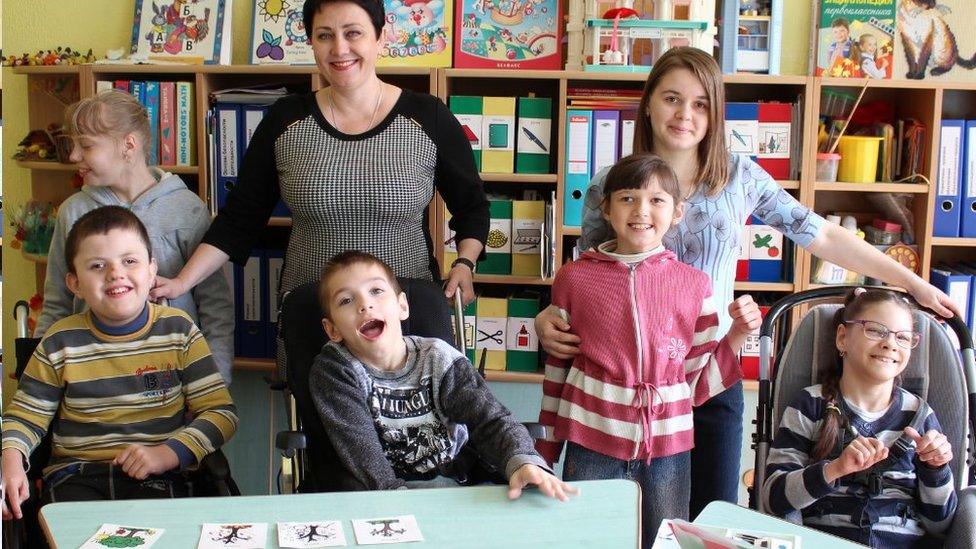
The Chernobyl Children's Project (UK) has also sent volunteers to Belarus to teach about education
"Maybe this drama will make a difference," she said.
"It was very accurate, it was quite eerie seeing it.
"It would be great if they could make another series about what happened afterwards."
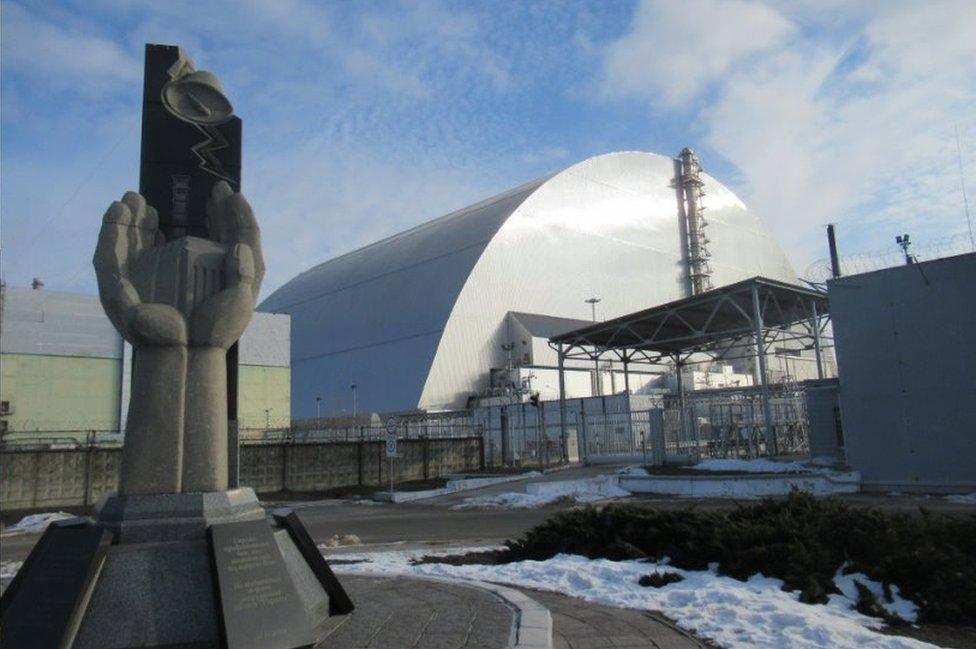
An enormous shelter has been built over the remains of the reactor
- Published6 May 2019
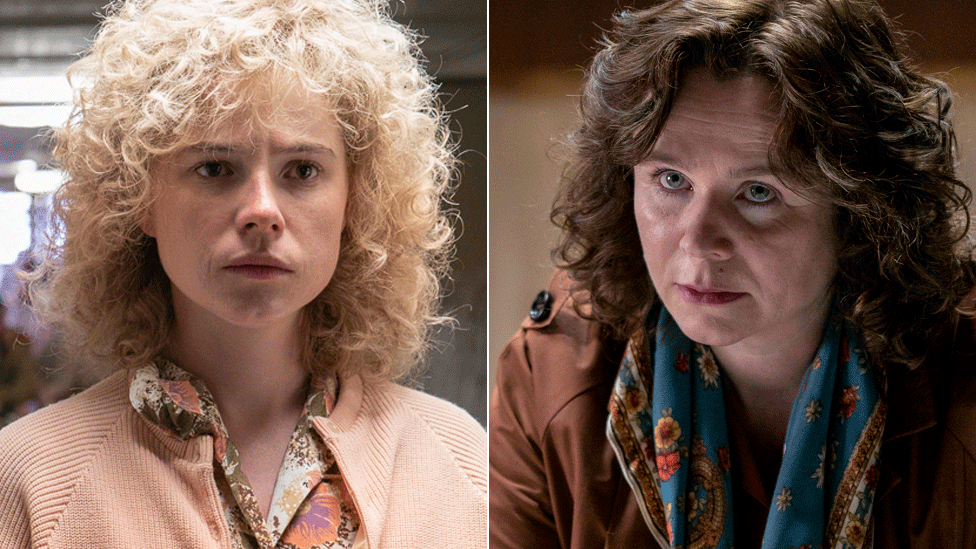
- Published21 December 2018
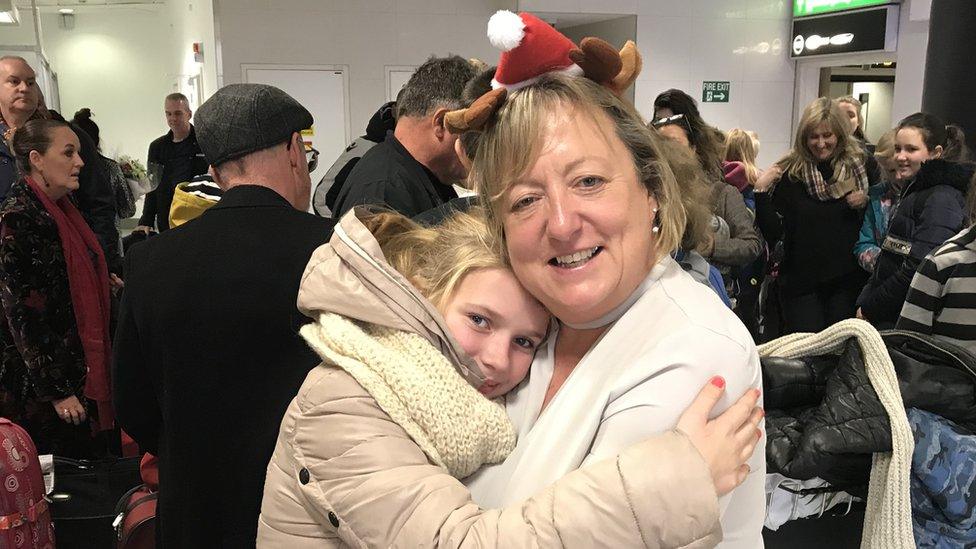
- Published14 November 2016
